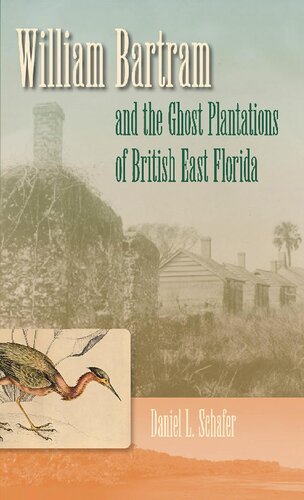

Most ebook files are in PDF format, so you can easily read them using various software such as Foxit Reader or directly on the Google Chrome browser.
Some ebook files are released by publishers in other formats such as .awz, .mobi, .epub, .fb2, etc. You may need to install specific software to read these formats on mobile/PC, such as Calibre.
Please read the tutorial at this link: https://ebookbell.com/faq
We offer FREE conversion to the popular formats you request; however, this may take some time. Therefore, right after payment, please email us, and we will try to provide the service as quickly as possible.
For some exceptional file formats or broken links (if any), please refrain from opening any disputes. Instead, email us first, and we will try to assist within a maximum of 6 hours.
EbookBell Team

0.0
0 reviewsIn his famous and influential book "Travels", the naturalist William Bartram described the St. Johns riverfront in East Florida as an idyllic, untouched paradise. Bartram's account was based on a journey he took down the river in 1774. Or was it?
Historians have relied upon the integrity of the information in William Bartram's "Travels" for centuries, often concluding from it that the British (the colonial power from 1763 to 1783) had not engaged in large-scale land development in Florida. However, the well-documented truth is that the St. Johns riverfront was not in a state of unspoiled nature in 1774; it was instead the scene of drained wetlands and ambitious agricultural developments including numerous successful farms and plantations. Unsuccessful settlements could also be found, William Bartram's own foundered venture among them.
Evidence for the existence of these settlements can still be found in archives in the United Kingdom and in the family papers of the descendants of British East Florida settlers and absentee landowners. So why did Bartram choose to erase them from history? Was his insistence on a pristine paradise in "Travels" based on an early expedition that he and his father, the botanist John Bartram, conducted in 1764-65? Was his distaste for development a result of bitterness and shame over his own failed settlement?